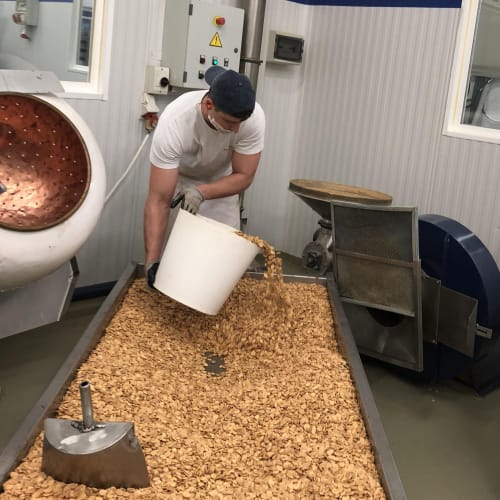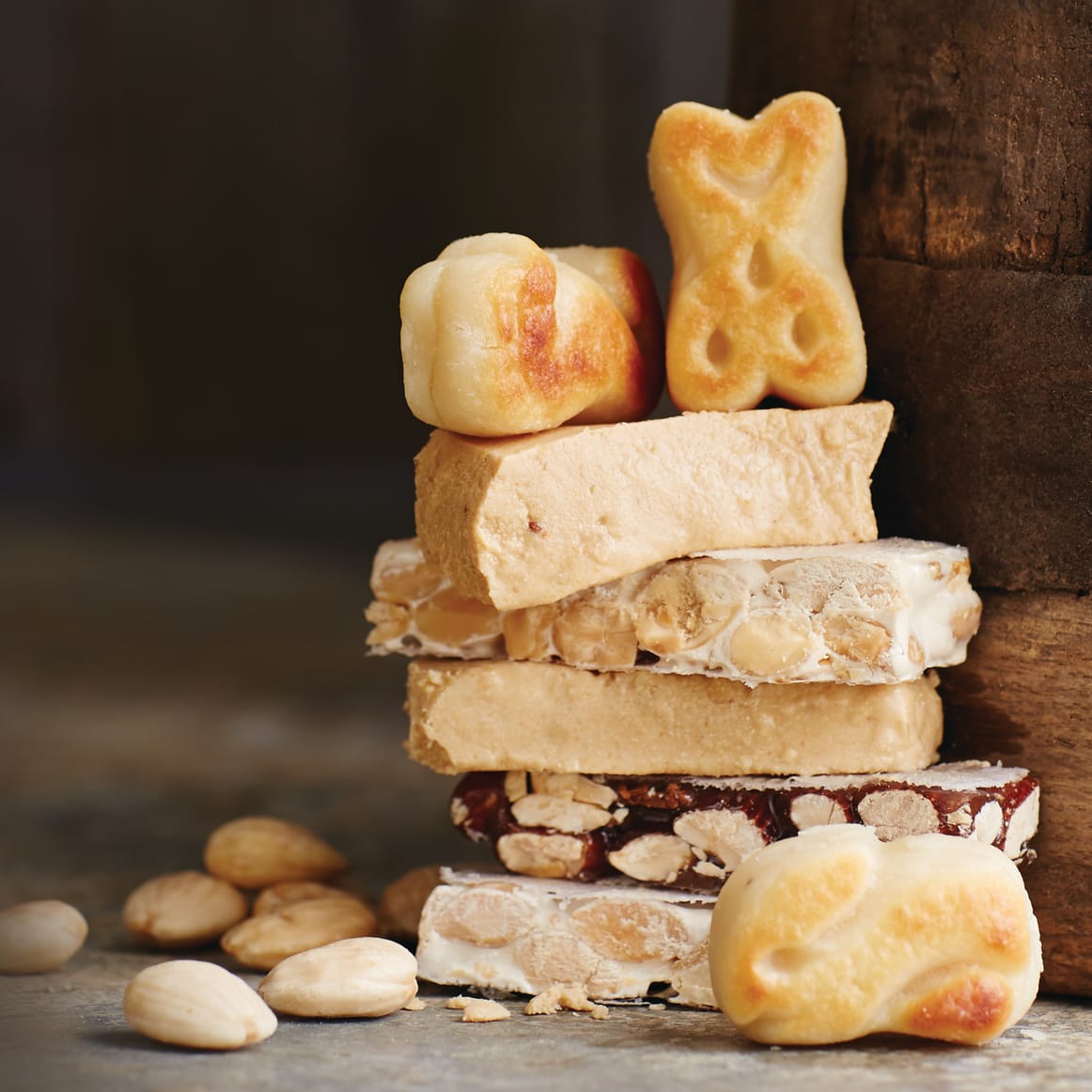Three Kings Sale - Up to 40% Off! Shop Sale
A Christmas Paradox
November 2005




I am intrigued by the paradoxes in human behavior -- history is full of them. One of the most delicious of these (in many senses of the word) is that the traditional cakes and confections that Spaniards enjoy each Christmas have their roots in the Moorish culture of Spain. And why not - Christians, Muslims and Jews lived together in Spain for over 700 years.
The Biblical staples of almonds and honey are at the core of the cuisine of the Middle East. To this day honey is a major focus of commerce in that region. The Moors brought the almond tree with them to Spain. Most Christmas confections enjoyed in Spain -- whether it is turron from Alicante, marzipan from Toledo or polvorones and roscos from Cordoba are made of almonds or honey.

The centrality of the almond in daily Spanish life was illustrated to us when several years ago we set out to have the finest mantecados for Christmas. We wanted the best in Spain, and the little town of Estepa, deep in the countryside of Cordoba, was reputed to be the source. At first as North Americans we thought it would be easy. We sent an email order to the producer in July so that they could deliver the products to our shipping container in a timely manner, well in time for the busy holiday season. We believe in planning ahead. Well, we kept waiting and waiting for a reply. After a month passed we decided to telephone them, but to no avail. Finally, in October we established contact - so much for our advanced planning for shipments to the States.
The following spring my wife Ruth and I decided to drop by the town of Estepa, the historic center of polvorones in Spain. We wanted to get a flavor of the place, and to meet the management of the company we contacted, so that we could understand what exactly was going on. We were greeted cordially by the owners of this family company who proudly showed us around their bakery. But to our surprise there was virtually no activity in the plant. In fact, the town of Estepa seemed especially laid back, with a pace of life that we only can envy.
Then we discovered the secret: life in Estepa is directly affected by the almond harvest. Other than preparation and maintenance of the facilities, there is nothing to be done until the trucks full of fresh almonds roll into town in September. At that moment, the whole community springs into action. The men bring the almonds to the processing area. Their wives set aside their normal homemaking tasks and head for the huge bakery. For the next several weeks they work together to produce the famous confections that will grace thousands of homes of their fellow countrymen throughout Spain.
Many of the cookies are very fragile. Polvorones get their name because they may crumble in your hand-turn to a sweet nutty powder. In fact many Spaniards crumble them before eating them. They are a combination of ground almonds, honey and ibérico shortening -- so delicate that they are individually hand wrapped in tissue paper for their protection. The same care is given to the crunchier roscos - little doughnut shaped almond cookies flavored with wine, as well as alfajores a spiced almond shortbread traditionally from Sevilla. As you can see, the almond is king.

If we move east of Cordoba toward the Mediterranean, we will encounter the province of Alicante and the little town of Jijona where tons of almonds are delivered each autumn. For the almond is at the core of the production of turron, which, like the polvorones, is nothing but almonds and sugar, with the addition of honey and a little egg white for the crunchier 'Alicante' version. The softer 'Jijona' turron is like its Middle Eastern cousin, halvah, except it is made from ground almonds rather than ground sesame seeds. In Spain, Christmas is not Christmas without turron!
We learned about a couple of other cherished holiday confections when we visited the medieval walled city of Avila - far from sunny Andalucía. We met the owner of the esteemed Yemas de Santa Teresa. He makes yemas, which are a medieval confection made of egg yolk which is dropped into hot sugar syrup. He also makes what is purported to be the finest membrillo (quince preserve) in Spain. As he was talking to us he apologized because although he still makes his famous membrillo from the traditional recipe, demand has grown so much that he has started to augment his supply of quince with some grown in Chile.
'The quince fruit of Spain have to endure the vicissitudes of winter,' he explained, 'whereas the fruit from Chile matures in a climate of perpetual summer. Therefore,' he said, 'they are not the same - the ripening quinces of Chile have had it too easy.' He looked at me intently and said, 'If you have not suffered, you are silly!' How very Spanish of him, I thought. I do not know about suffering quinces, but he was expressing a truth: that through struggle and testing you become a more mature person. I never expected a philosophical twist to a discussion of membrillo!
At any rate, I asked him about importing his celebrated marzipan, one of the greatest of all Christmas treats. He replied, regretfully, that it was not possible to ship it to America, because authentic marzipan has a shelf life of only a few days. The combination of ingredients is so fragile that with the jostling and temperature changes of shipment would ruin it. We heard the same story from the most famous marzipan producer in Toledo, who adamantly refuses to sell us his product, even when we offer to ship them by air, as we have done with our polvorones, mantecados etc. So, if you are an epicurean, you will have to wait until your next trip to Spain to enjoy the finest expression of marzipan. For those who cannot wait that long we did find some more stable (if less than perfection) marzipan figures for the holidays. They ought to arrive soon.
Returning to my original thought, the paradox of Christians being indebted to Muslims for their Christmas celebrations is a good lesson. The Christmas confections were the result of centuries of living together - often in some sort of harmony or equilibrium after the tumultuous early days of conflict. A little more than 50 years ago Jews, Christians and Muslims lived side by side in Palestine and Lebanon. It can and it will happen again. It is part of the hope expressed in this Holiday Season.
¡Felices Fiestas!
Don

